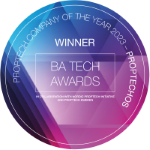The commercial real estate industry has stepped up to redefine sustainability in a world of environmental challenges. Part of this transition involves the use of carbon accounting. By measuring and managing greenhouse gas emissions, carbon accounting has become a driving force for businesses determined to make a positive impact.
What is carbon accounting, and why is it so important?
Carbon accounting is a powerful tool that involves carefully measuring, tracking, and managing human activities’ greenhouse gas (GHG) emissions. Commercial real estate (CRE) businesses can gain valuable insights into their environmental impact by adopting carbon accounting practices.
Scope 1, 2 & 3 emissions
Within carbon accounting, we consider different types of emissions called scopes.
- Scope 1 covers direct emissions from sources the business owns or controls, like burning fuels on-site.
- Scope 2 includes indirect emissions from purchased electricity, heating, and cooling.
- Scope 3 encompasses indirect emissions throughout the entire value chain, such as transportation and waste management.
Examples of carbon accounting
Real-life examples from the commercial real estate industry show how carbon accounting makes a difference in sustainability. Certifications like ESG green buildings and the WELL Building Standard use carbon accounting to prove a commitment to energy efficiency and renewable resources. Laws like New York City’s Local Law 97 require buildings to measure and share carbon emissions, encouraging transparency and energy-saving efforts.
Greenhouse gas accounting and ESG reporting
GHG accounting involves carefully measuring and tracking emissions of gases like carbon dioxide (CO2), methane (CH4), and nitrous oxide (N2O). These emissions are a result of human activities and contribute to climate change. Accounting for them is an essential part of ESG reporting.
Understanding the concept and significance of GHG for commercial buildings
In commercial real estate, GHG accounting is closely linked to ESG reporting. ESG reporting involves sharing information about a company’s environmental, social, and governance practices with stakeholders like investors and tenants.
Incorporating GHG accounting into ESG reporting helps businesses understand their environmental impact. They can use this to develop strategies for reducing emissions, saving energy, and using renewable resources. An ESG data platform can consolidate your GHG accounting and all other ESG data into a single platform, making it easier to extract insights.
Benefits of implementing carbon accounting in commercial real estate
Implementing carbon accounting practices in commercial real estate brings a range of benefits, including:
- Improved environmental performance: Identify real estate energy efficiency opportunities, reduce waste, and adopt sustainable practices, resulting in a greener and more sustainable environment.
- Enhanced corporate reputation: Demonstrate commitment to sustainability, attracting investors, tenants, and customers who value environmentally responsible businesses.
- Cost savings: Optimize energy use, streamline operations, and adopt energy-efficient technologies to reduce utility bills and operational expenses.
- Compliance with regulations: Ensure adherence to environmental regulations and industry standards to avoid penalties and demonstrate responsible operations.
- Stakeholder engagement: Involve stakeholders in sustainability efforts, fostering partnerships, innovation, and shared purpose.
The importance of transparency
Openly sharing information about carbon emissions and sustainability efforts demonstrates accountability and builds stakeholder trust. It also promotes collaboration and innovation, as businesses share best practices and work together to drive industry-wide change. CRE companies that remain transparent can attract investors looking for sustainable investments.
The future of carbon accounting and its role in sustainable CRE buildings
The future of commercial real estate (CRE) is all about sustainability, and carbon accounting plays a vital role in making it happen. As technology advances, carbon accounting will become simpler and more efficient. Automated tools can streamline the process of collecting and analyzing carbon emissions data to gain deeper insights.
Simplify and automate your GHG with Proptech
Proptech can help simplify and automate your carbon accounting and GHG monitoring. From IoT devices collecting data to analytics software creating detailed reports, Proptech generates accurate GHG data and saves time. It can also support real-time data from smart sensors, enabling data-based decision-making based on current data.
You can enhance the capabilities of your Proptech by creating a unified ecosystem that allows for communication between your solutions. ProptechOS acts as your building’s operating system to enable this communication and enhance the capabilities of all your Proptech. Try ProptechOS for free today to see how it can help with your carbon accounting.

Per Karlberg
Per Karlberg, a distinguished technology executive, demonstrates deep expertise in the nexus of real estate, technology, and ESG. Holding advanced degrees from Lund University, and with key roles as CEO of our company and Co-Founder of ProptechOS, he has shaped the proptech field through significant contributions to real estate technology advancements. His instrumental work in co-authoring “The realestatecore ontology” has facilitated digital transformation and ESG breakthroughs in the real estate sector.
Read his full bio and information here.

